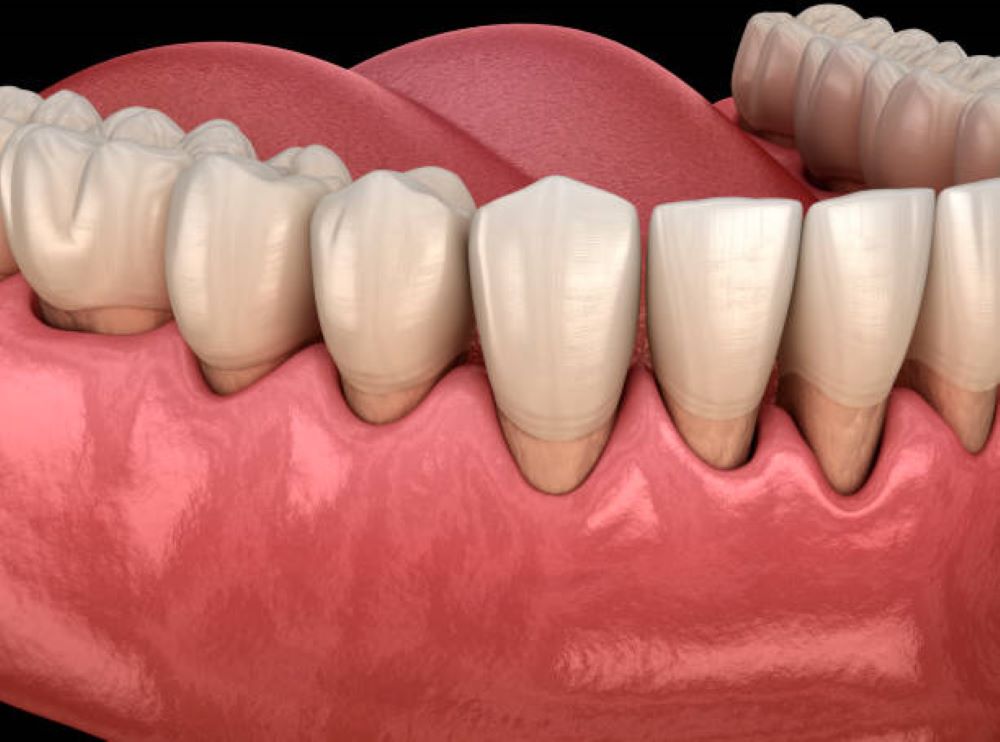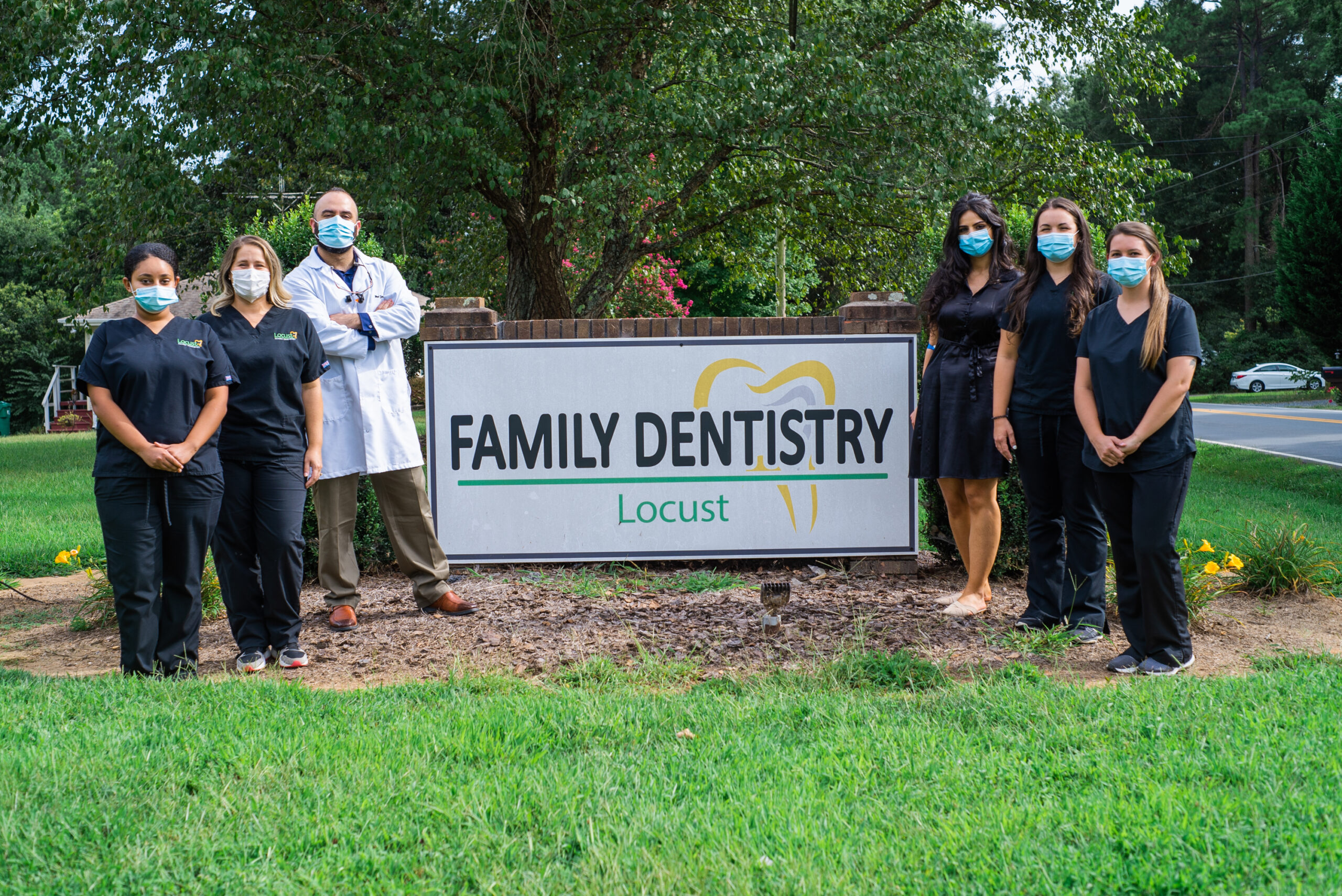Understanding Receding Gums: Causes, Symptoms, and Treatment Options

Receding gums, or gingival recession, is a dental problem that can cause serious oral health issues if left untreated. As the gum tissue pulls back and exposes more of the tooth or its root, it can cause sensitivity, increase the risk of tooth decay, and affect your smile’s aesthetics.
At Locust Family Dentistry, we treat receding gums in Locust, NC, and can help you maintain optimal oral health. Let’s discuss the signs to look out for, ways to prevent receding gums, and the best treatment options available.
What Are Receding Gums?
Receding gums happen when the margin of the gum tissue surrounding your teeth pulls back or wears away, exposing the root or more of the tooth. Gum recession leads to pockets or gaps forming between your teeth and gum line, easily building up diseases that cause bacteria. Our dentists in Locust, Dr. Zeitouni and Dr. Maxhuni say that if you don’t treat receding gums, the supporting tissue and bone structures can be severely damaged and later lead to tooth loss.
Signs and Symptoms of Receding Gums
Receding gums are caused by poor oral hygiene, aggressive brushing, periodontal disease, hormonal change, genetics, misaligned bite or teeth, and grinding and clenching of the teeth. Here are the signs and symptoms you should take note of.
1. Visible signs of gum recession
One of the most noticeable signs of receding gums is the appearance of longer teeth. With gums pulling back, more teeth and roots become visible, causing aesthetic concerns.
2. Gum inflammation or bleeding
Gum inflammation or bleeding gums is often the first sign of gum disease, which can lead to recession. This can be noticed when brushing or flossing your teeth. Healthy gums should not bleed easily, so visit a Locust dentist for evaluation.
3. Sensitivity to hot or cold temperatures
Unlike tooth crowns covered by enamel, the roots are protected by a much softer material called cementum. Making your teeth more sensitive to hot, cold, acidic, or sweet foods and drinks.
4. Tooth mobility or shifting
You might notice subtle changes in your teeth’s position or that they feel loose. This mobility is a sign that you have severe gum disease and need immediate dental care.
How Can I Prevent Receding Gums?
Prevent receding gums by adopting a proactive approach to oral health:
- Brush and floss twice a day to maintain good oral hygiene.
- Use proper brushing techniques by avoiding aggressive brushing that can wear away gum tissue.
- Visit your dentist regularly for professional checkups and cleanings.
- Eat a balanced diet rich in minerals and vitamins to support gum health.
- Avoid tobacco products, as smoking and chewing them can increase gum disease and lead to gum recession.
What Is The Best Treatment for Gum Recession?
Gum recession treatment depends on the underlying cause and severity of the condition. Here are some treatment options:
- Scaling and Root Planing: This deep cleaning procedure removes tartar and plaque from below the gum line, helping the gums reattach to the teeth.
- Regenerative Procedures: Materials like bone grafts, tissue-stimulating proteins, or membranes are used to regenerate gum tissue and lost bone.
- Gum Grafting: This is a surgical procedure in which tissue is taken from another part of your mouth or donor source and grafted onto the affected area to cover exposed roots and restore gum tissue.
- Orthodontic Treatment: Aligners or braces can correct misaligned teeth and reduce undue pressure on the gum to prevent further recession.
- Pinhole® Surgical Technique: This minimally invasive procedure involves repositioning the gum tissues to cover exposed roots without needing sutures.

Seek Professional Help For Receding Gums in Locust, NC
If you’re experiencing any symptoms of receding gums in Locust, NC, we advise you to seek our professional dental care for gum health. We provide gum recession treatment, periodontal treatment, and other treatment options to restore your gums and protect your teeth. Don’t wait until it gets worse, schedule an appointment today with our dentists.




